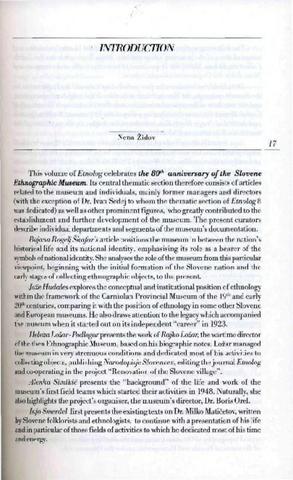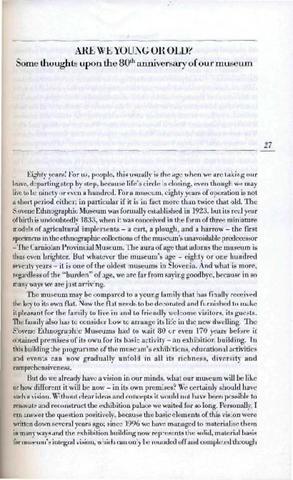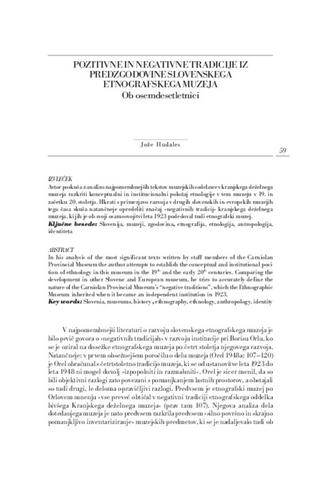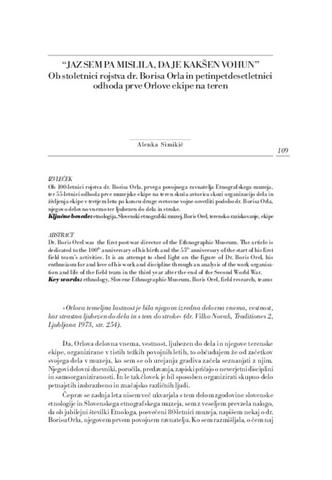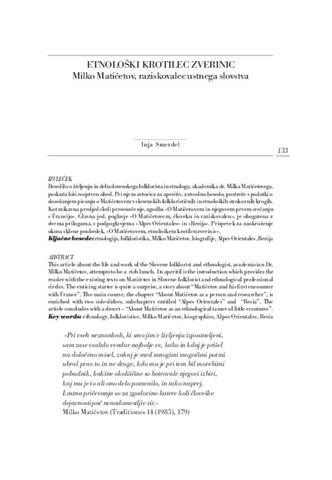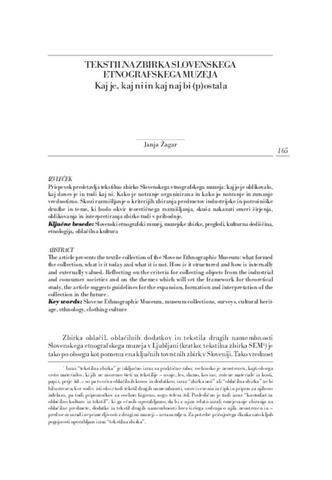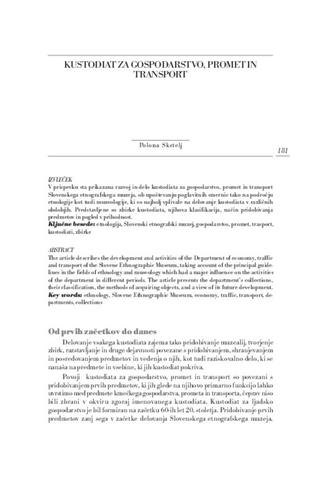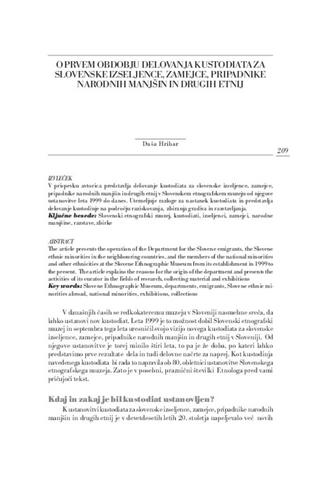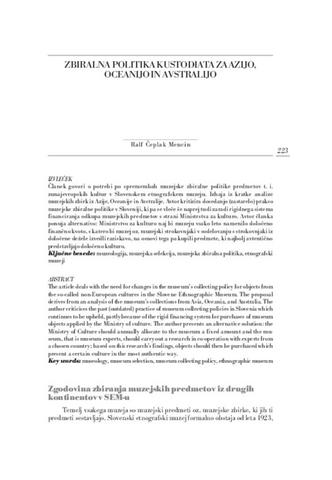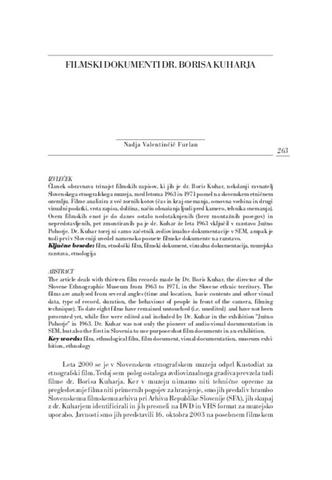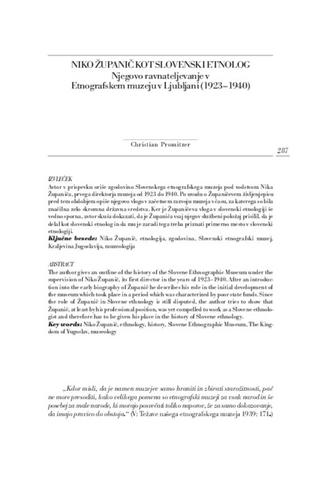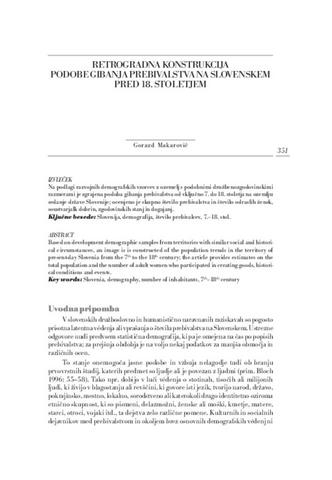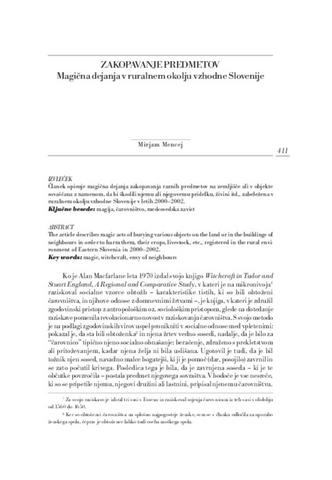Etnolog 13 (2003)
The article examines the Slovene Ethnographic Museum’s position in between two realities: the his
In his analysis of the most significant texts written by staff members of the Carniolan Provincia
Rajko Ložar, the wartime director of the Ethnographic Museum in Ljubljana and an archaeologist by
Dr. Boris Orel was the first post-war director of the Ethnographic Museum.
This article about the life and work of the Slovene folklorist and ethnologist, academician Dr.
The article presents the textile collection of the Slovene Ethnographic Museum: what formed the c
The article describes the development and activities of the Department of economy, traffic and tr
The Department of Social Culture was established in the Slovene Ethnographic Museum in the 1970s.
The article presents the operation of the Department for the Slovene emigrants, the Slovene ethni
Author presents an alternative solution: the Ministry of Culture should annually allocate to the
The article presents the activities of the Education and Adult Education Service of the Slovene E
The article presents the House Archive which is part of the documentation of the Slovene Ethnogra
The article deals with thirteen film records made by Dr.
The article presents documents from the archives of the Ethnographic Museum in Belgrade which wit
The author gives an outline of the history of the Slovene Ethnographic Museum under the supervisi
Based on development demographic samples from territories with similar social and historical circ
The article describes magic acts of burying various objects on the land or in the buildings of ne
The article deals with the development of national costumes in Slovenia as costumes for special o
Ethnologists have already researched many fields related to Slovene emigrants.
The article presents the findings of a research into the principal characteristics of Ottoman urb
The article presents and analyses the data which were collected, using, ethnological questionnair

